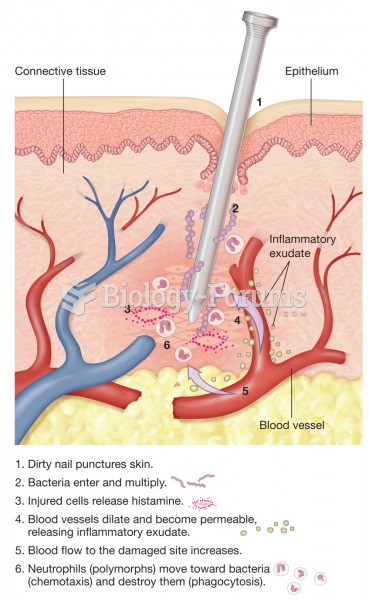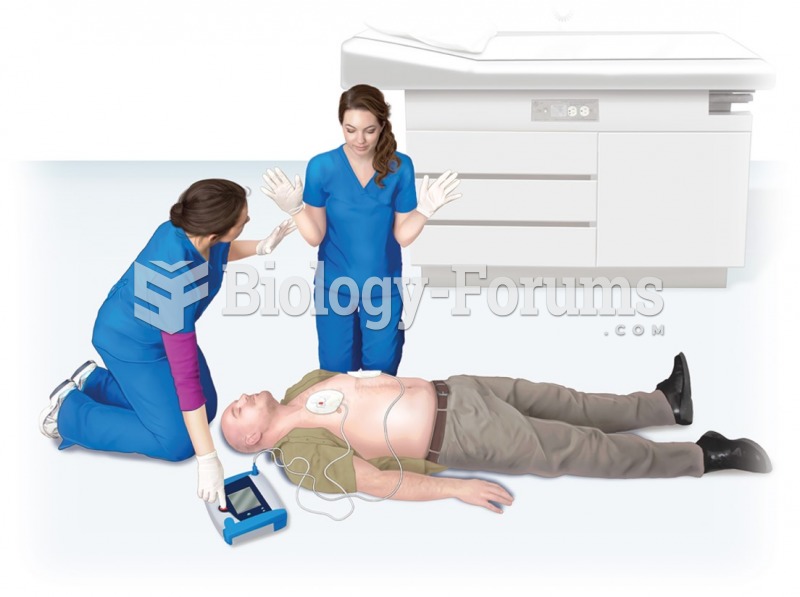|
|
|
The Romans did not use numerals to indicate fractions but instead used words to indicate parts of a whole.
In the United States, an estimated 50 million unnecessary antibiotics are prescribed for viral respiratory infections.
For about 100 years, scientists thought that peptic ulcers were caused by stress, spicy food, and alcohol. Later, researchers added stomach acid to the list of causes and began treating ulcers with antacids. Now it is known that peptic ulcers are predominantly caused by Helicobacter pylori, a spiral-shaped bacterium that normally exist in the stomach.
Medication errors are three times higher among children and infants than with adults.
If all the neurons in the human body were lined up, they would stretch more than 600 miles.







